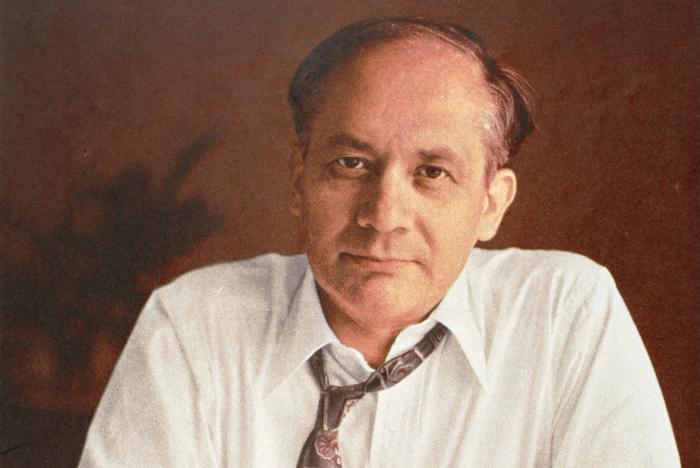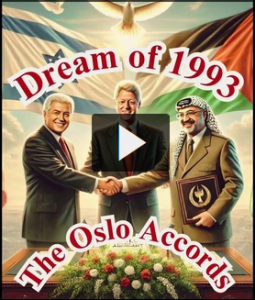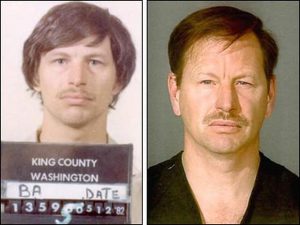
At a quiet New York cemetery in 1959, a handful of people stand around a fresh grave as a casket is lowered. Any passerby seeing the small somber ceremony might assume that the body belonged to a person of little significance. In fact, this casket carries the body of a man who is responsible for one of the largest shifts in international law in human history. Without his efforts, it is likely that the gravest crime mankind has ever committed and continues to commit would still be a crime without a name.
By the end of World War II, the Nazi regime had orchestrated the murder of over 17 million civilians in concentration camps throughout Europe. 1 Despite these egregious atrocities, no one at the time referred to the Holocaust as an act of genocide, not because it was not an appropriate descriptor, but because Raphael Lemkin had not yet coined the word and defined the crime for the world. The outcome of his personal crusade to encode ‘Genocide’ in an internationally recognized and binding Convention to which the US would sign on became his legacy (the US signed on decades after his passing).
Lemkin was born to a Polish-Jewish family in 1900 in a small village called Bezwodne in what was then The Russian Empire. Home schooled by his mother, he proved to be a brilliant scholar. By the time he received his undergraduate degree from Jan Kazimierz University he had learned over 14 languages and showed strong aptitude and interest in international law. After a career as a prosecutor in Poland, he was forced to flee to Sweden to evade capture by the Nazi forces in 1939. However 49 of his relatives were tortured and/or killed, drops in the ocean of inhumanity that was the Holocaust. 2

After fleeing the Nazi invasion, Lemkin eventually made his way to the United States. There he became a prolific professor, lecturing at the law school at Duke University in 1941 and the School of Military Government at the University of Virginia in 1942. He also served as an adviser to the United States War Department specializing in international law. 3
The world first became aware of Lemkin’s concept of genocide after the publication of what would arguably be his most important work, Axis Rule in Occupied Europe, in 1944. Primarily a legal analysis of the behavior of Nazi Germany in occupied territories during World War 2, the book also contained a full definition of the crime Lemkin dubbed “genocide.” 4 After this publication, Lemkin dedicated the rest of his life to getting the international community to acknowledge genocide as a crime under international law.
Lemkin drafted a resolution for a treaty which would officially ban genocide under international law. He then took his resolution on the road, presenting it to any nation which would hear him, hoping to garner enough support to endorse a convention on the subject. After years of lobbying the international community, The United States UN delegation agreed to present Lemkin’s resolution to the General Assembly. Dubbed “The Convention on the Prevention and Punishment of the Crime of Genocide,” the resolution was adopted on December 9th, 1948. It would be another 3 years before enough countries signed on the the convention to make it enforceable. Much to Lemkin’s dismay, The United States was not one of the first 20 signatories. 5

Lemkin dedicated the rest of his life to lobbying those nations which had not yet signed onto the convention, with the United States being his primary target. He invested every moment of his time and every cent of his modest wealth to landing that particular white whale. He eventually died of a heart attack, impoverished, unemployed, and underappreciated, in 1959. His funeral was a small affair, reportedly only attended by 7 people. 6 Yet, today, the is no Law School, no class that teaches Human Rights, nor any conversation of World War II and any of the subsequent Genocides that does not mention his name. More importantly, the Convention provided some tools to prevent or punish such cases.
The greater legacy of his life’s work would not be realized until several decades after Lemkin’s death. The United States would eventually sign the Genocide Convention, but not until 1988. The international community would eventually convict a man of the crime Lemkin coined, but not until the International Criminal Tribunal for Rwanda in 1998 which found Jean-Paul Akayesu guilty of the Rwandan genocide. Three years after that, Radislav Krstic was similarly convicted for the murder of 8,000 Bosnian Muslims in Yugoslavia. 7 Though he died nearly 40 years too early to see the fruits of his labor truly flourish, we can hope that his soul finds solace in the fact that, thanks to him, these heinous actions have a name and are viewed the world over as being among the worst crimes humanity has ever known. Eradicating the crime of genocide still eludes us but at least accountability is now more widespread around the world. 8
- Donald Niewyk and Francis R. Nicosia, The Columbia Guide to the Holocaust (New York: Columbia University, 2000), 43. ↵
- Raphael Lemkin and Donna-Lee Frieze, Totally Unofficial: The Autobiography of Raphael Lemkin (New Haven: Yale University Press, 2013). ↵
- Robert Bliwise, “The Man Who Criminalized Genocide,” Duke Magazine, November 14, 2013, http://dukemagazine.duke.edu/article/man-who-criminalized-genocide . ↵
- Rafael Lemkin, Axis Rule in Occupied Europe: Laws of Occupation, Analysis of Government, Proposals for Redress, (Washington D.C.: Carnegie Endowment for International Peace, Department of International Law, 1944) pg. 79. ↵
- Raphael Lemkin and Donna-Lee Frieze, Totally Unofficial: The Autobiography of Raphael Lemkin (New Haven: Yale University Press, 2013). ↵
- Jay Winter, “Prophet Without Honors” The Chronicle, June 3, 2013, https://www.chronicle.com/article/Raphael-Lemkin-a-Prophet/139515 . ↵
- Robert Bliwise, “The Man Who Criminalized Genocide,” Duke Magazine, November 14, 2013, http://dukemagazine.duke.edu/article/man-who-criminalized-genocide . ↵
- United Nations, “Convention on the Prevention and Punishment of the Crime of Genocide,” United Nations Treaty Collection, 78:1, 1021 (9 December 1948), New York: United Nations, 1951, 278-311. ↵



196 comments
dgutierrez41
Howdy Mr. Wyatt, I found this article to provide questions of the human ability to digest travesty. Undoubtedly with or without this man, humans would still be able to recognize the travesty that is the eradication of a people. Though to what degree is where Raphael Lemkin and his work hold so much what in the digestion of travesty. In his coining of the term Genoicde language is able to explicitly describe the idea in the human mind of a people disappearing off the face of the earth. Therefore the weight of the crime became so much more sever than mass killing because the intent and consequence of the action. Lemkin would provide a scale to weigh human travesty far beyond his years in adding in the concept of human justice.
mmartinez257
This article flows very well and tells a compelling origin story. It demonstrates one of the inevitable rules of politics; that is, politics is reactionary. WWII warranted an eventual consensus in the international community that genocide is a heinous war crime, but had it not been for those atrocities committed in WWII, we might still regard genocide as a typicality under international law, and that is scary to think about. At the moment I cannot think of any serious criticisms. The information was easy to digest.
vvillarreal31
It is surprising and interesting to see how many people who continue to make a difference for change in the United States and advocate not only for their country but for other countries in need, were highly neglected. Lemkin lived an interesting life only being homeschooled by his mother and attending a local university and yet was able to learn numerous languages around the world. A lot of the neglect of getting people like Raphael Lemkin to be highly known and talked about is the fact that there has always been a large amount of segregation and discrimination among the United States. When we pretend to act like our ancestors before us were the colonizers of this land.
jsolis40
Hi Matthew! This article does so well in explaining Raphael Lemkin’s early life from being homeschooled to learning 14 languages by the time he graduated! So interesting. I cannot imagine losing over 49 relatives especially knowing they were tortured. I still cannot believe that there is no law school named after Dr. Lemkin after he did something that would be so important.
Nursultan Berdaliyev
This article shows that even one person can make a huge contribution to the world community using their knowledge and skills. I admire the fact that Mr. Lemkin designated exactly those terrible actions and gave them a specific term. Unfortunately, he did not manage to find general recognition during his lifetime, but his legacy for humanity really has a huge scale. Thank you for such an interesting article!
Lisa Varela
Dr. Raphael Lemkin is an embodiment of how, when one truly believes in a cause they will stop at nothing to accomplish it. It is truly admirable how he upheld what he believed at any cost, whether that be financially or through physical grunt work. If it were not for his work and the significant effort he went through in order for it to be recognized, the world would not have a term to define the horrors that occurred on the African continent is the last decade of the twentieth century. A horror that would later be referred to as the Rwandan Genocide. Great work Matthew in telling the story of a man whose name is not as well-known as his work! On one last note, this article is an interesting read along with the article of Ana Gonzales, “Omar Hassan Ahmad Al Bashir: President and Criminal.”
Makenzie Hockensmith
This article showcased the life and legacy of Lemkin, and I think it did so in a way that gave context to Lemkin’s argument and motivation by exploring his background. It also painted the picture of how a man who is so important nowadays was not so during his time, a fact that is unfortunately true for many great scientific and artistic names. By exploring the man behind the concept of genocide, one can see the important security considerations related to international and human security in how he crafted his argument and approached the subject as a whole. Additionally, his efforts eventually led to the conviction of Jean-Paul Akayesu for the Rwandan genocide, a wrong that still darkens the African continent today. I think one part of the article that could be expanded is the discussion on what Lemkin actually argued and presented at the UN General Assembly, as this is the crux of his life’s work and it did feel as if we talked around the topic without actually discussing it.
Maya Gallegos
Genocide is something prevalent throughout African history, particularly the Rwandan genocide during the 1990s, and remains a key security issue on the continent. Lemkin’s work proved pivotal to the development and international recognition of genocide, and continues to be relevant today. I do wonder how his work would be more developed if he had the recognition and attention he received following his death during his lifetime.
Joshua Hall
Genocide is particularly relevant in the African sphere. Mass-slaughters have become far too common in Africa. We take for granted the terminology of genocide and the parameters promulgated in international law. From Rwanda, Darfur, Boko Haram in the west and the numerous other examples of slaughter that do not meet the legal definition of genocide. Mr. Lemkin’s crusade to ensconce the legal framework to prosecute genocide was a blessing to humanity. He may have died in obscurity, but his light has shone forth.
Wonderfully written article on Mr. Lemkin. I would have liked to hear more about his exploits lobbying nations to adopt the UN charter. But that may not have been a part of the assignment.
James Fee
I am starting a job soon that deals with war crimes, and reading about Lemkin was both interesting and helpful. I had no idea the origin of the term genocide in a legal sense was so modern. In terms of legacy, it is always fascinating when a person’s work takes off after they are gone.